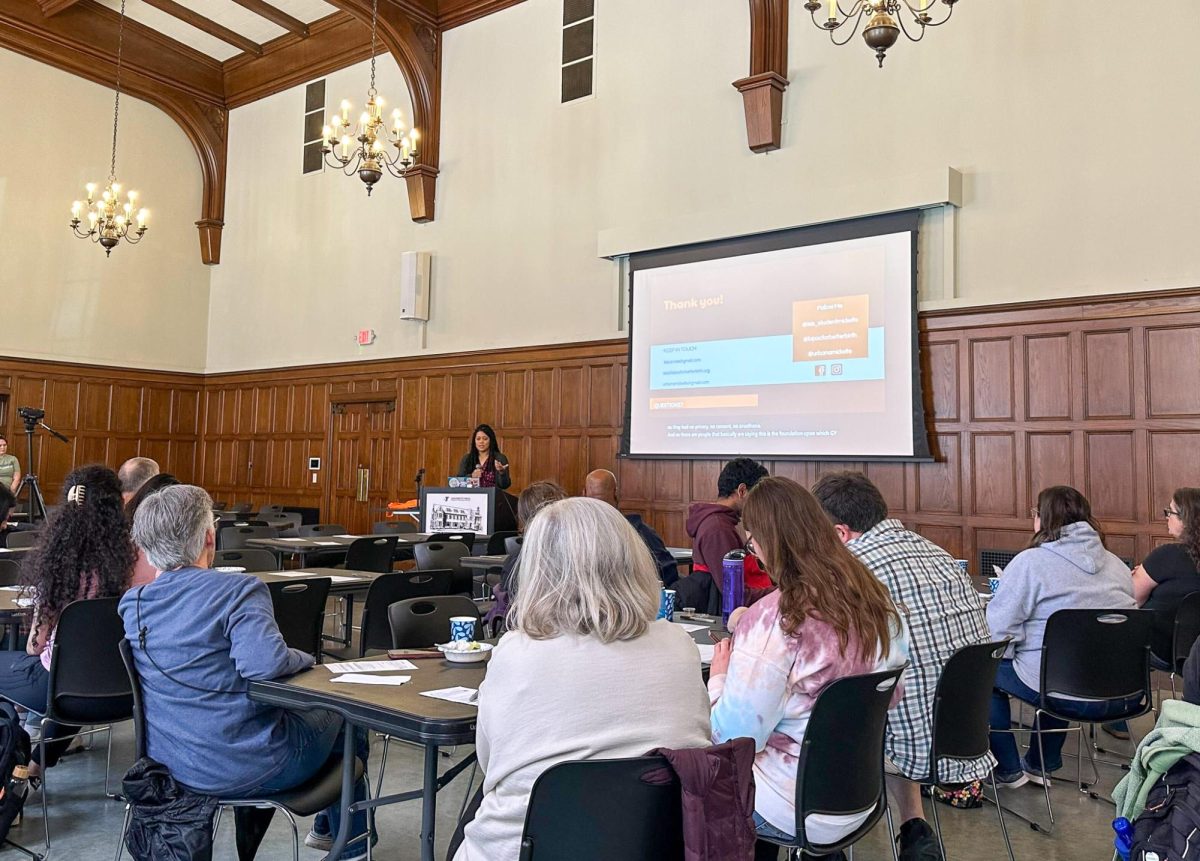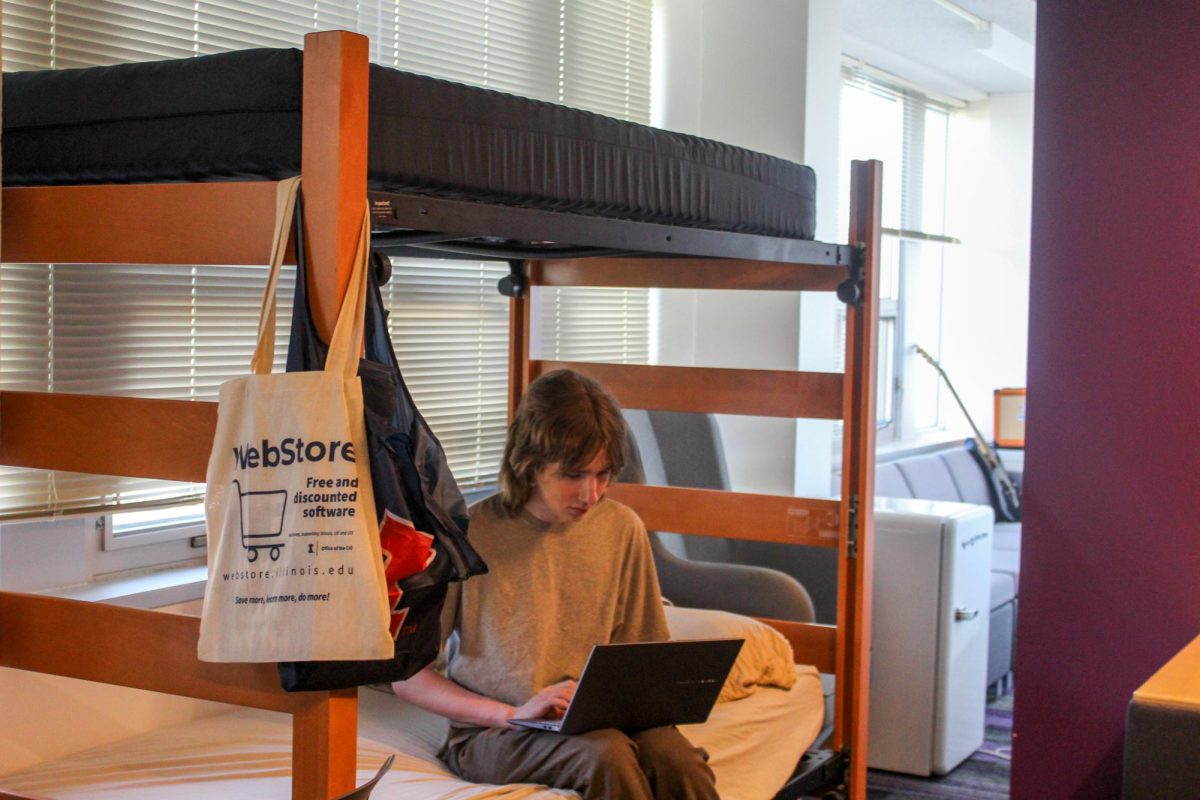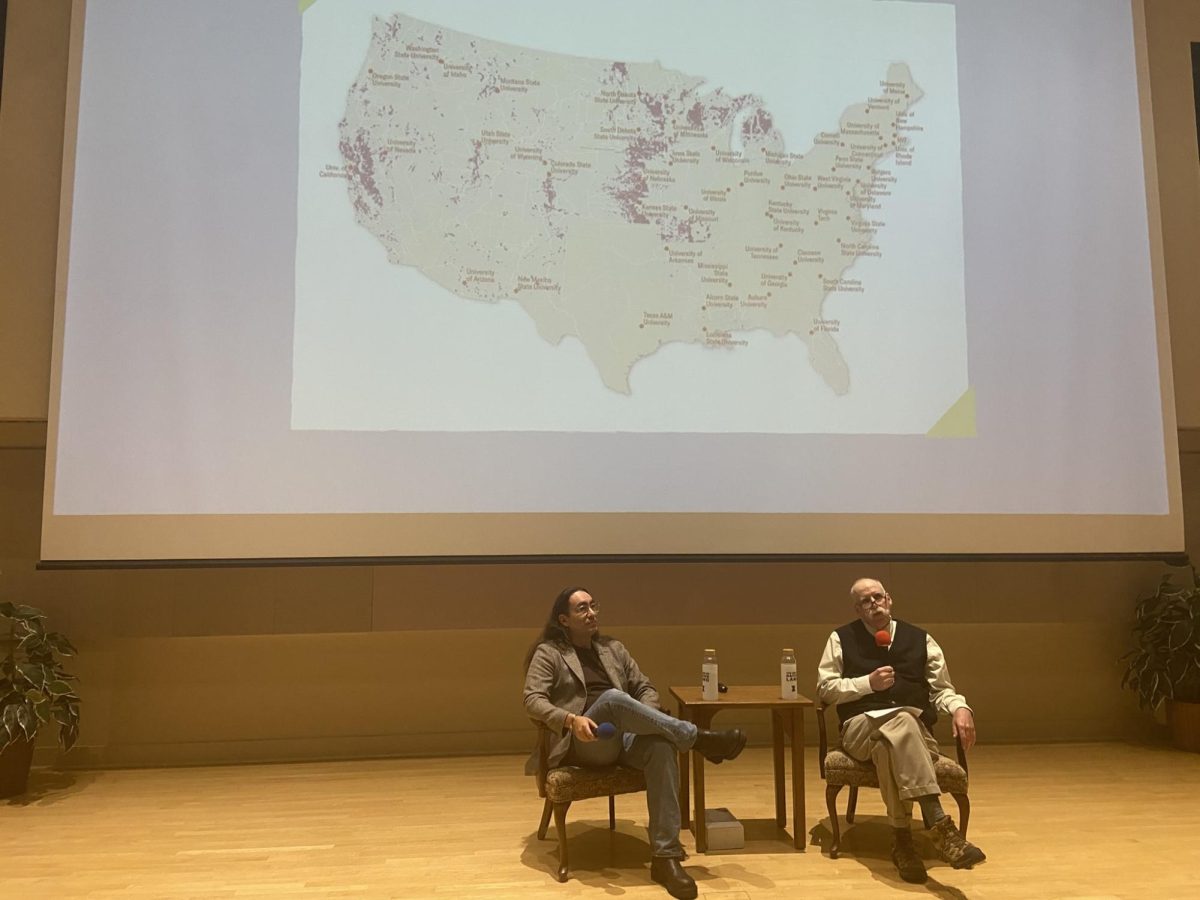Isis Rose, a certified childbirth educator and doula, spoke about midwifery at the University YMCA Friday afternoon.
The presentation was associated with the University YMCA’s Friday Forum + Conversation, a weekly forum that allows the public to learn and discuss pressing concerns or issues.
Rose started the discussion by explaining her profession. Currently, Isis Rose is a second-year student at Commonsense Childbirth School of Midwifery pursuing a certification in formal midwifery, also known as a CPM. She has been involved in birth work since 2016.
A midwife is a trained healthcare provider who offers a range of sexual and reproductive health services, which include care during pregnancy and birth. Rose, however, explains that Illinois CPMs currently sit in a legal “gray area.”
“It is unknown when licenses will become available,” Rose said. “I’m hoping before the beginning of next year.”
Get The Daily Illini in your inbox!
Rose discussed that the integration of midwifery varies across states; outcomes for mothers and infants tend to be better in regions with higher levels of integration. However, regulations and legislation are preventing independent practice which ultimately limits broad access to midwifery care.
“Although the demand for midwives is growing — especially racially and ethnically diverse midwives — it remains largely unmet,” Rose said. “Black childbearing people experience the biggest gap between demand and access.”
Next, Rose pointed out a 77% increase in home births since 2020 due to COVID-19. Many midwives petitioned for emergency licensure during the peak of the pandemic.
“Illinois Council of Certified Professional Midwives wrote an open letter to Governor J.B. Pritzker about an increased demand for home-birth midwives,” Rose added. “The governor denied emergency licensure but legislators agreed to look into making Midwife Practice Act work for all interested stakeholders.”
In May of 2022, however, new legislation was signed into law by Governor J.B. Pritzker which allows CPMs to become primary birth attendants at birth centers.
“An updated card is needed in 2024 in order to be certified,” Rose said.
Rose finished off by describing BIPOC for Better Birth, which is a non-profit that she created in partnership with two colleagues. It is based in East-Central Illinois and offers free to low-cost training for people from various racial and ethnic backgrounds who are seeking to become birthing workers.
“I am very proud of the fact that we trained seven doulas last spring,” Rose said.






